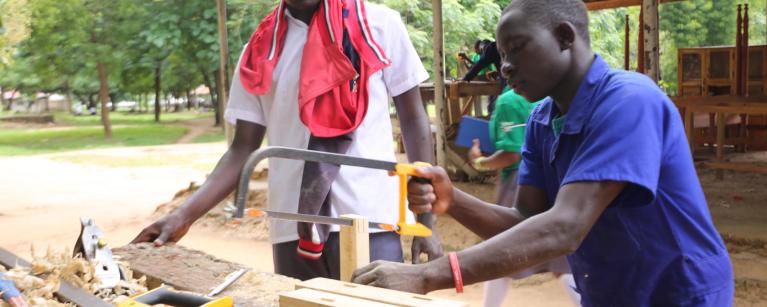The International Youth Day is here, and we are reminded of the immense potential within the youth—a generation teeming with passion, creativity, and desire to make a difference. For young people in Uganda and across the globe, this day is more than just a celebration; it is a call to action, a chance to reflect on the strides made toward youth empowerment, and a reminder of the journey ahead.
In Uganda, the reality for many young people is stark. Despite their enthusiasm and aspirations, they face alarmingly high levels of unemployment and underemployment. According to the Human Resources Survey, 41% of Ugandan youth are neither employed, educated, nor trained. Without immediate intervention, studies indicate this could swell to over 5.8 million by 2030/31, deepening inequality. The root of this problem is multifaceted, but majorly is the mismatch between the skills youth possess and the demands of the job market.
Prof. Apollo Nsibambi once observed, “The challenge with Africa is that we train today what was required yesterday.” This highlights a significant issue. The skills imparted to the youth often lag behind the rapidly evolving needs of the job market. Even when young people acquire education or training, it frequently fails to equip them with the tools necessary to thrive in today’s dynamic world.
The solution lies in a robust and targeted skilling strategy that goes beyond traditional professional courses to embrace what is now termed “21st-century skills.” These are the abilities that empower young people to navigate challenges, seize opportunities, and realize their full potential. Skills such as communication, collaboration, critical thinking, and innovation are essential for success in a modern work environment yet are rarely taught within the confines of a classroom.
Investing in youth skilling will not only improve individual prospects but also transform society as a whole. When equipped with relevant skills, young people become more competitive in the job market, contribute meaningfully to economic growth, and drive social change.
Agribusiness is one area where targeted skilling can make a profound impact. The narrative that youth are uninterested in agriculture is misleading. What they need are the tools and knowledge to make agriculture accessible, attractive, and profitable—what we might call “cool farming.” This involves more than traditional farming to include roles in transportation, marketing, input supply, and processing, which offer viable jobs for young people.
Similarly, in our digital age, skilling youth in information and communication technology (ICT) is critical. By providing access to the internet and building skills in web design, content creation, data analysis, and coding, we open up vast opportunities for employment and entrepreneurship.
Internships and mentorships are also crucial. These programs bridge the gap between academic learning and practical application, allowing young people to gain hands-on experience in a real work environment. Through an Internship Program I implemented at Oxfam funded by the European Union, young people developed essential soft skills such as teamwork, communication, and self-awareness, alongside technical skills, making them more competitive in the job market. Most of these now have jobs in reputable organizations. Having started as an Intern myself, I can attest to the boast that mentorship provided.
Most importantly, young people must have a voice in the decisions that affect them. Youth must be at the heart of developing programs aimed at their empowerment. When given space to express themselves and supported to pursue their interests, youth can turn their ideas into successful businesses and social enterprises.
Thankfully, there are positive examples of youth skilling initiatives in Uganda. Programs supported by the government and organizations such as Enabel, Irish Aid, Oxfam, and UNICEF are making great strides, but there is a need to consolidate these efforts and address the remaining gaps.
However, skilling alone is not enough. Without a conducive environment for these skills and ideas to flourish, we risk creating a generation of poverty. It is crucial that we support youth in advocating for favorable business conditions and connecting them to market opportunities.
As we celebrate International Youth Day, let us reflect on how we can be part of the solution and create a fairer, equal future for the youth. They have the dreams, energy, and passion to transform our world. It is our responsibility to invest in their efforts through skilling and create an environment where their potential can be unleashed.
By Charity Chelangat | Youth Engagement and Empowerment Coordinator at Oxfam in Uganda.
